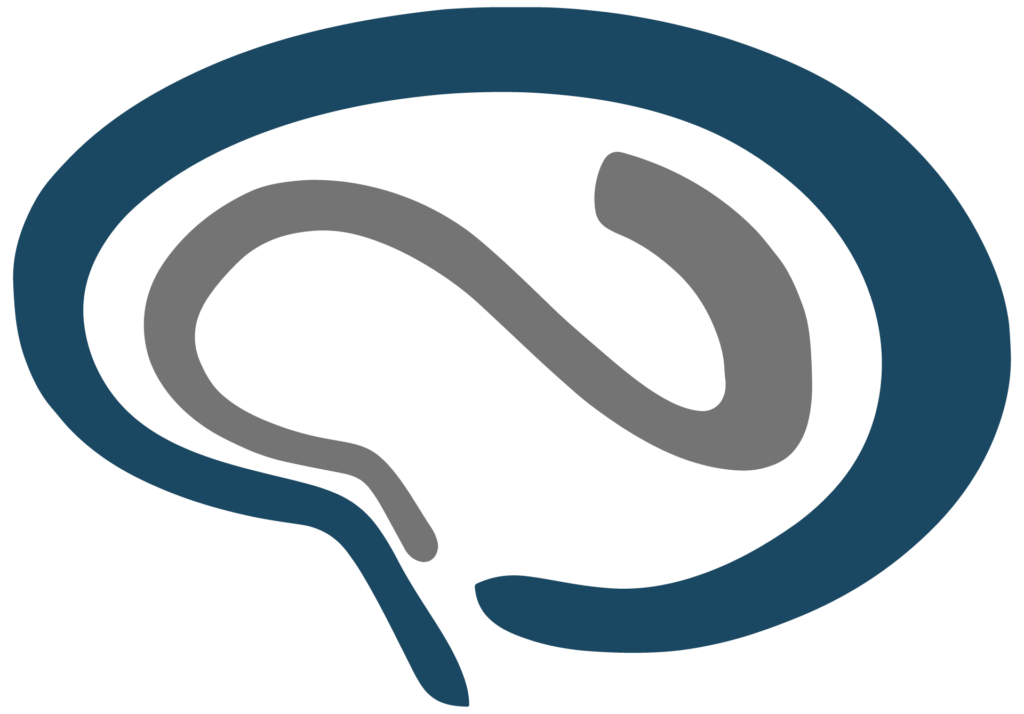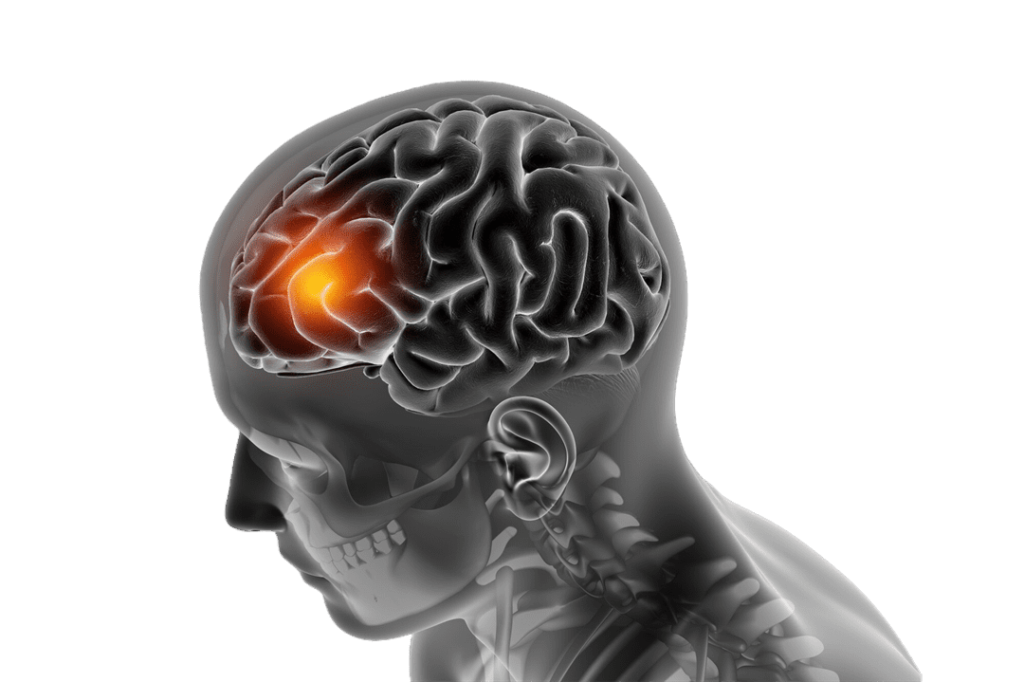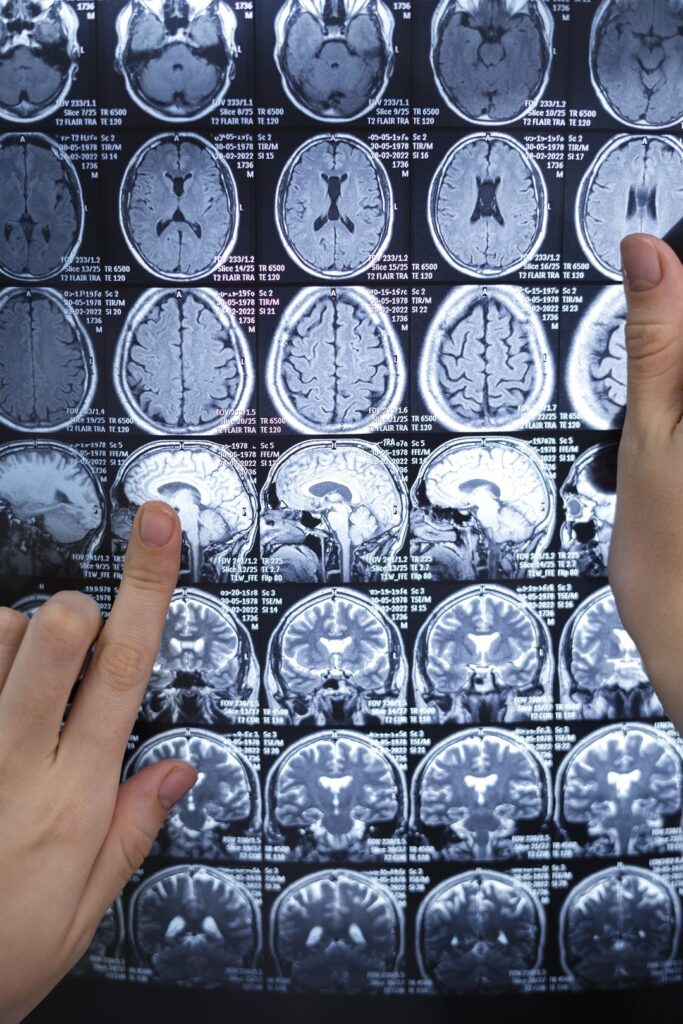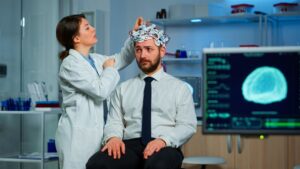At Greater Houston TBI, we are dedicated to providing specialized care in the diagnosis, treatment, and rehabilitation of Traumatic Brain Injuries (TBI). Located in Houston, TX, and serving the surrounding towns and cities, our comprehensive services reach over 3.5 million residents. Our mission is to restore quality of life for those affected by TBIs, offering a compassionate approach that combines cutting-edge medical treatments with personalized care.


A Traumatic Brain Injury (TBI) occurs when a sudden, external force impacts the brain, disrupting its normal function. TBIs can range from mild, where the effects are often temporary, to severe, where the consequences can be life-altering or even fatal. Understanding the nature of TBIs is the first step toward effective treatment and recovery.
Often referred to as a concussion, mild TBIs can cause a temporary disruption in brain function. Symptoms may appear immediately or develop over hours or days and often include headaches, confusion, dizziness, fatigue, blurred vision, and memory problems. While these symptoms may resolve with rest and care, even mild TBIs require careful monitoring to prevent complications.
These types of TBIs involve a greater impact on the brain, potentially leading to prolonged unconsciousness or coma. Symptoms can be more severe and long-lasting, including persistent headaches, repeated vomiting or nausea, convulsions, slurred speech, weakness or numbness in extremities, and profound confusion. These injuries can result in long-term cognitive, emotional, and physical impairments, requiring extensive medical intervention.
TBIs can occur in a variety of situations, and understanding the causes and risk factors is crucial for prevention and early intervention.
Causes: The most common causes of TBIs include falls, motor vehicle accidents, sports injuries, and acts of violence. Each of these situations can lead to significant trauma to the head, resulting in varying degrees of brain injury.
Risk Factors: Certain populations are more susceptible to TBIs. Children, due to their developing brains, and elderly individuals, who may have a higher risk of falls, are particularly vulnerable. Athletes participating in contact sports and individuals in hazardous occupations are also at an increased risk of experiencing TBIs.

The impact of a TBI can extend far beyond the initial injury, leading to a range of complications that can affect nearly every aspect of a person’s life.
Depending on the severity of the injury, a TBI can result in various levels of altered consciousness, including coma, vegetative state, or brain death. These conditions represent significant disruptions to the normal functioning of the brain and require intensive medical care.
TBIs can lead to a host of physical issues, such as seizures, infections, and fluid buildup in the brain. These complications can significantly hinder the recovery process and may require ongoing medical attention.
TBIs often result in cognitive impairments, affecting memory, learning, concentration, and problem-solving abilities. These intellectual challenges can make daily activities difficult and may require specialized therapies to manage.
At Greater Houston TBI, we are committed to offering a comprehensive approach to TBI treatment that addresses the full spectrum of needs for each patient. Our multidisciplinary team works closely to create personalized treatment plans that focus on maximizing recovery and enhancing quality of life.
Each patient’s journey to recovery is unique, and our approach reflects this. We develop personalized treatment plans that may include:
To manage symptoms such as pain, seizures, or depression, we prescribe medications tailored to the patient’s specific needs.
In cases where there is significant brain swelling, bleeding, or other complications, surgery may be required to alleviate pressure and prevent further damage.
This therapy focuses on improving cognitive functions such as memory, attention, and problem-solving. Our cognitive rehabilitation programs are designed to help patients regain independence and adapt to any lingering cognitive challenges.
Physical rehabilitation is essential for patients who have experienced mobility or coordination issues as a result of their TBI. Our physical therapists work with patients to improve strength, balance, and motor skills.
Communication difficulties are addressed through specialized speech therapy, which helps patients regain the ability to speak, understand, and express themselves effectively.
Emotional and psychological well-being is a critical component of recovery. Our team includes psychologists and counselors who provide support for patients dealing with anxiety, depression, or other emotional challenges related to their injury.



Board certified neurologists, neuropsychologists, therapists and technicians who are experts in Traumatic Brain Injury, Headaches, Dizziness, Stroke, Other Neurological Conditions.

The most thorough and cutting edge diagnostic portfolio for head injuries in the world, many of which our teams work with leading technology vendor s and other healthcare regulatory organizations to help directly pioneer.

The brain is arguably the most important organ in the body and when injured can be truly devastating for patients. We bring the latest and greatest TBI treatments from the US and abroad to truly treat brain injuries.
At Greater Houston TBI, our strength lies in our team of dedicated professionals who are leaders in the field of brain injury care. Our experts are committed to delivering the highest level of care, ensuring that each patient receives the attention and expertise they deserve.
Our team includes neurologists, neurosurgeons, physical therapists, speech therapists, and psychologists, all working together to provide a comprehensive approach to TBI treatment. Each specialist brings a wealth of experience and a deep commitment to patient care.

Dr. George A. Khouri III, D.O., is a board-certified neurologist specializing in cognitive screening for Traumatic Brain Injury (TBI) and advanced brain mapping through Quantitative Electroencephalography (QEEG). With expertise in assessing neurological function, he provides precise diagnostic evaluations and personalized treatment plans. Dr. Khouri is dedicated to improving patient outcomes through cutting-edge neurodiagnostic techniques and comprehensive care for individuals with TBI and cognitive impairments.
Pain management is a critical aspect of TBI recovery. At Greater Houston TBI, we offer a wide range of pain management solutions designed to alleviate discomfort and improve overall quality of life.
We carefully select and manage medications to control pain without interfering with the healing process.
Targeted physical therapy helps reduce pain by improving mobility and strengthening the body.
We also offer alternative pain management therapies, such as acupuncture and biofeedback, to complement traditional treatments.
Understanding the emotional component of pain, we provide psychological support to help patients cope with the emotional and mental aspects of chronic pain.
If you or a loved one has suffered a TBI, Greater Houston TBI is here to help. Our team is ready to assist you through every stage of recovery, from initial diagnosis to ongoing rehabilitation. Contact us today to schedule an appointment and take the first step toward reclaiming your life.
Your path to recovery starts here.
Copyright © 2024 Greater Houston TBI. All Rights Reserved.